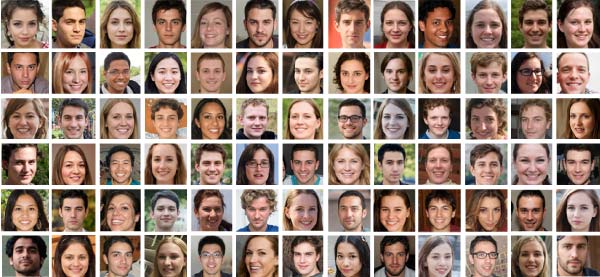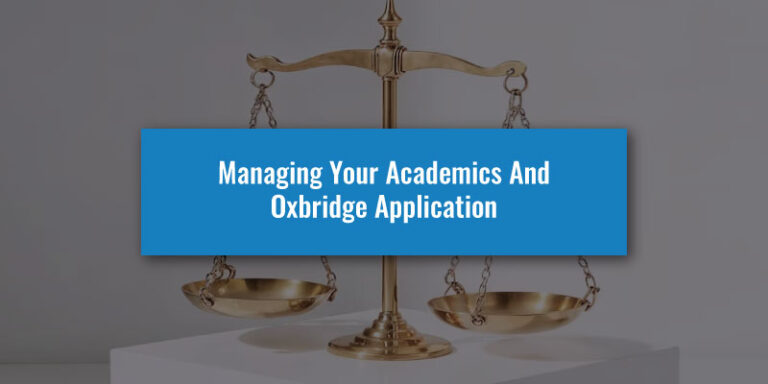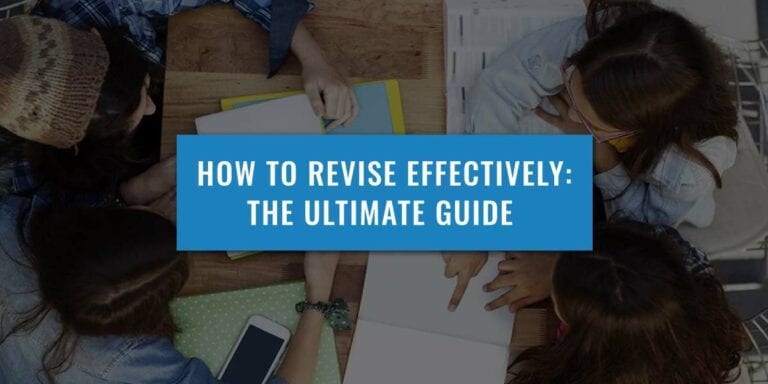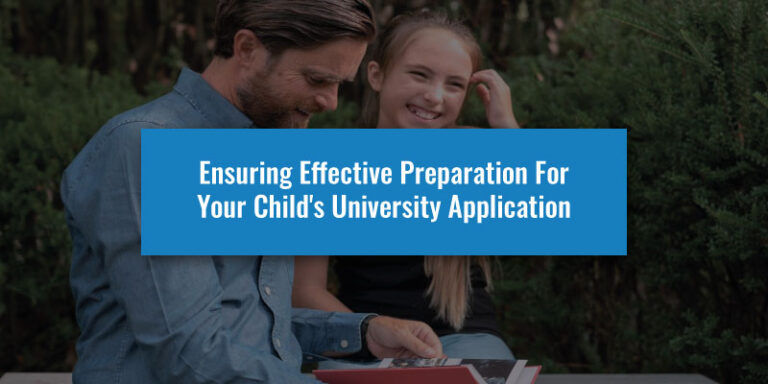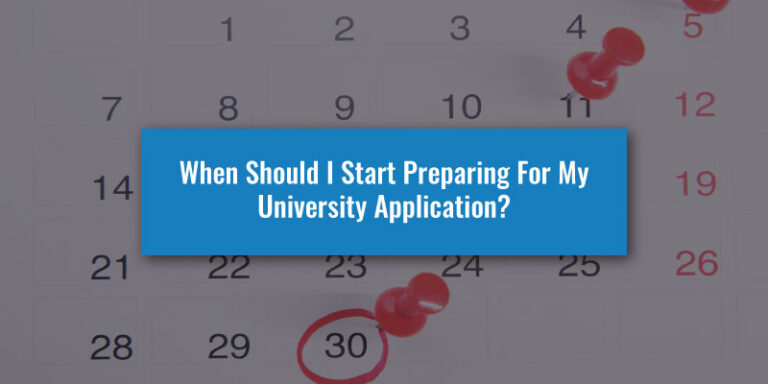Are you curious to know what it is like to study Dentistry at King’s College London?
Hi, my name is Priscilla, and I am currently just finishing my third year of Dentistry at King’s College London.
I’m here to give you an insight into what it is like to study Dentistry at King’s and some of the interesting things I have done so far! I have also included a breakdown of a typical clinical day as a dental student.
What to expect when studying Dentistry
What is first year like as a dental student?
The aim of first year is to develop your understanding of biomedical science. Teaching is mainly delivered through lectures and large or small group tutorials. King’s has recently opened a new Haptics suite within the hospital. A haptic machine replicates how it feels to drill into a real tooth using a range of drills and hand instruments. This is a simulation area used mainly by first and second-year dental students to help you practice your manual dexterity and hand-eye coordination. You can expect lots of time using Haptics in first year!
Once a week, we had the opportunity to complete a bit of dental nursing for the older years. On our clinical floors, we were able to set up the dental bays ready for when patients arrive and we could also observe interesting cases as long as the patient was happy for us to do so (they usually were). The whole cohort is split into 3 clinical teams and each team is on a different floor in the hospital. Each floor is made up of students across different year groups, so students in the higher years can help out students in the lower years if needed.
Dentistry is notoriously competitive and it helps to have an edge. Our expert tutors are on hand to help you achieve your dream offer.
Our students’ success rates for Dentistry vastly outcompete the national average of 12% (our Dentistry success rate is 83%).
To ensure you can compete with fellow applicants, we’ll help you craft the perfect Personal Statement, achieve a highly competitive UCAT score and teach you how to Interview effectively – covering all areas of your Dentistry application.
Discover our Dentistry Premium Programme by clicking the button below to enrol and triple your chances of success.
What is second year like as a dental student?
Second year is where you build the foundations of your practical clinical skills and anatomical knowledge. During second year you learn about three key clinical areas:
- Periodontology – this is where you will learn about the different types of gum diseases, how to give personalised oral hygiene advice and how we treat/prevent the development of gum disease.
- Conservative and Minimally Invasive Dentistry – you will look at the causes of caries (tooth decay) and different restorative options e.g. Fillings with different materials.
- Endodontics – in this topic, you will learn the essential steps of a root canal treatment.
Clinical skills sessions are carried out using phantom head models with fake teeth and gums. Practising on these models is such a great way to practice vital skills such as using a dental mirror for indirect vision and how to position yourself in a way that is comfortable for you and your patient. Usually, the end of second year is when students see their first patients. At the end of second year, you have a ‘licence to cut exam’ that you have to pass before you are able to go ahead and start treating patients. Unfortunately, due to the pandemic, I wasn’t able to treat my first patient until third year.
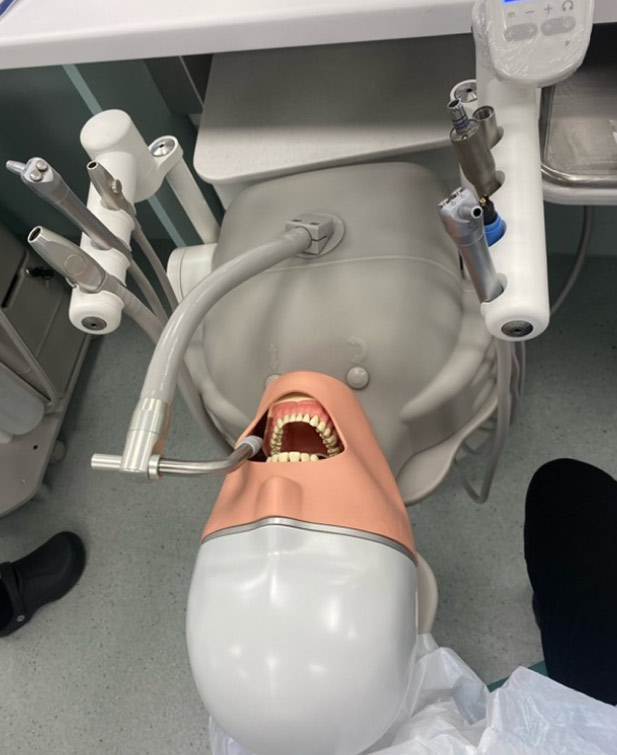
As well as the above, you are introduced to radiology in second year. You will learn the theory behind how different types of x-rays work and will also be given the chance to take x-rays on real patients! This was one of my favourite parts of second year – I also really enjoyed learning how to read the x-rays and start making small diagnoses’.
What is third year like as a dental student?
Third year is the chance to combine science learnt in the previous years with practical clinical skills. In addition to building on the topics you started learning about in second year, you are introduced to new a clinical area called Prosthodontics. Prosthodontics is all about learning how to design, make and fit dental products that replace missing teeth such as dentures, crowns, veneers and bridges.
One of my favourite parts of third year has been going to the oral surgery department at King’s College Hospital. So far, I have learnt how to administer local anaesthetic and the different techniques that can be used when extracting a tooth. As part of our oral surgery rotation, I have been able to observe and assist in extractions where the patient is also under sedation – this was really interesting and I definitely learnt so much about patient management.
An iconic part of third year is the halfway ball. This ball is to mark making it halfway through your dental degree. It’s a formal black tie event that every student eagerly waits for. This year it was held in the heart of central London, at the De Vere Grand Connaught Rooms, where we were served an amazing three-course meal and lots of awards were presented throughout the evening. There was even a photo booth and chocolate fountain!
Find out what a day in the life is like for students at other universities and courses:
Average week at King's College London
Let’s have a look at what an average week looks like for me. Every other Monday I have a full day of clinical skills starting at 9 and finishing around 4 – 4:30pm. The other Monday I have free! Instead of having lectures throughout the week like in previous years, you only have one lecture day in third year, which is currently on a Tuesday.
There are usually about 2-5 lectures a week. Wednesdays are half days of patient treatment – every other week I am the dentist and book in a patient. When I am the dentist, my clinical partner is the dental nurse and vice versa. My schedule on a Thursday alternates each week. On the first week I have a full day of clinical skills. On the second week, I spend the day treating patients. In the morning my clinical partner is the dentist while I nurse for her, and then we swap over in the afternoon.
On Fridays, I either have a tutorial or two, oral surgery over at King’s College Hospital or a free day!
What is a typical clinical day like at King's?
7:30 AM
Time to wake up and get ready for the day ahead. I always set another alarm at 7:40 in case I fall back asleep! I usually make a coffee in my flask that I take to help me wake up.
8:30 AM
I usually leave the house around 8:30 and jump on a bus that takes me straight to Guy’s Hospital.
9:00 AM
I arrive at the hospital, get changed into my scrubs, and make my way onto my clinical floor. While my clinical partner discusses with a clinical tutor, I set up the dental bay and collect any equipment, instruments and materials we will need for the morning.
10:00 AM
Our morning patient arrives and I assist my partner in carrying out treatment.
12:30 PM
Lunchtime! In the hospital, we have a whole floor just for us dental students that has a seating area where we can eat lunch and socialise.
1:30 PM
In the afternoon, I am the dentist while my clinical partner nurses for me. Before my patient arrives, I look over my notes from previous appointments and discuss my planned treatment with my clinical tutor.
2:00 PM
My afternoon patient arrives and I carry out the treatment with the support of my clinical partner and clinical tutor.
4:30 PM
I finish writing up my patient notes and complete a reflective practice form on how my appointment went. Then I get changed and make my way home.
5:00 PM
I arrive home and start on dinner. I love cooking so it’s a nice way for me to relax after a long day and I also get to enjoy a really nice meal at the end of it!
Tips for studying Dentistry at KCL
- Stay organised! – staying organised will ensure you do not miss any deadlines and that you are at the right place at the right time. Especially when you start booking patients in, it’s important you know who you are treating and the planned procedure. By doing this, you can revise procedures beforehand. I’d encourage you to get a diary so you don’t end up double booking any appointments!
- Connect with students in older years – students in the years above have been a great help. In first year, you will be placed in a ‘dental family’ with a couple of students in your year and ‘parents’ in the year above. My dental parents have been really helpful and are always happy to answer any questions I have. There’s no one better to ask than those who have been in your position.
- Make the most out of every clinical session – having limited clinical skills sessions during the pandemic helped me to really appreciate each session. Coming prepared to every session and asking questions to clarify anything confusing is really important. Some parts of the course can be really fast-paced so don’t be afraid to ask your clinical tutors to go over some topics with you – they are there to help!
I hope this gives you a better idea of what life as a dentistry student looks like!
Applying to Dentistry is becoming more competitive, but we’ll ensure you can compete with fellow applicants.
Our students’ success rates for Dentistry vastly outcompete the national average of 12% (our Dentistry success rate is 83%).
To ensure you can compete with fellow applicants, we’ll help you craft the perfect Personal Statement, achieve a highly competitive UCAT score and teach you how to Interview effectively – covering all areas of your Dentistry application.
Discover our Dentistry Premium Programme by clicking the button below to enrol and triple your chances of success.

